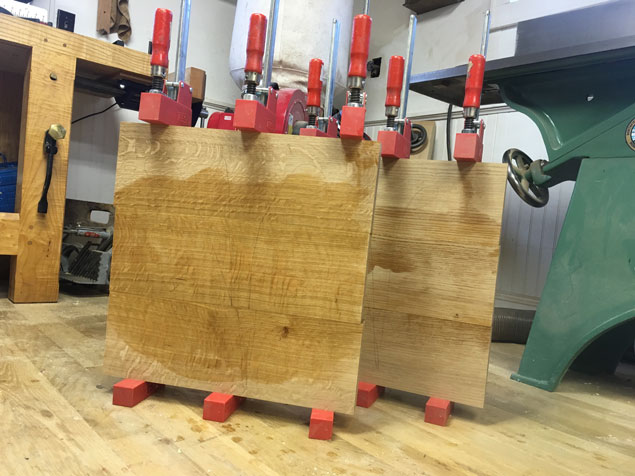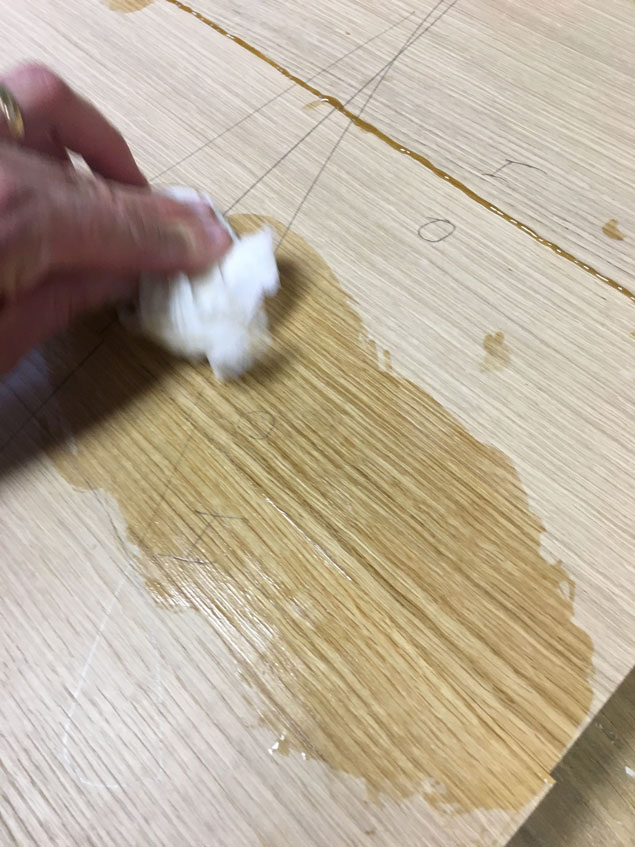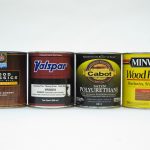We may receive a commission when you use our affiliate links. However, this does not impact our recommendations.
The craft is clogged with so many counter-productive myths and practices that someone could make a career out of a “Mythbusters”-like approach to woodworking.
If I could eliminate one myth from the national wood-consciousness, it would be that you shouldn’t wipe off wet glue from a joint and should let it set to a more solid state.
Lots of people – including glue technologists and working craftsmen – have studied the problem. Here are the facts.
- Wiping wet glue away with a wet cloth will not dilute the glue at the joint, starve it or weaken its bond (unless you use a fire hose).
- Wiping wet glue away with a wet cloth will not dilute the glue and cause “glue size” or a clogging of the pores and ruin your finishing efforts (unless you are sloppy about cleaning up the glue or don’t dress your surfaces with a sander or handplane).
- Wiping away the wet glue will allow you to see any gaps in your joinery while you can still take things apart and fix them.
- Semi-hardened glue can be tricky to remove. Let it get too hard and you can tear away chunks of wood fibers at the joint. Remove it when it’s only skinned and you will just make a second more difficult mess to clean.
- Letting the glue harden completely before scraping it off is more work than I like to do. And you can tear out chunks of wood.
- To wipe away wet glue, take a clean cloth that is wet but not sopping wet. Clean the glue away from the joint using circular motions, like waxing a car. Don’t be a snowplow. When you start to see glue smears, dunk the rag in water again to get the glue off.
- Regular surface prep with sandpaper and/or handplanes will remove any glue-clogged fibers. In making many many panels since 1993, I’ve never once experienced glue size (or a joint failure).
- Ignore anyone who tells you different.
- Live happily ever after.
- Yes, this applies to hide glue, white glue and yellow glue.
- No, I don’t know about poly glue or epoxy. Those aren’t typical furniture-making glues.
— Christopher Schwarz
Here are some supplies and tools we find essential in our everyday work around the shop. We may receive a commission from sales referred by our links; however, we have carefully selected these products for their usefulness and quality.











In somewhat keeping with gluing issues, I have a question perhaps only you can answer. It has caused much consternation on several Facebook Woodworking pages that I follow. I learned this years ago and it seems to work other than the controversy. I was taught that if you put a few grains of salt on one of the boards in a glue up that it prevents the joint from sliding during clamp up. I’ve never experienced any adverse or disastrous effects. My thoughts are that the salt will disolve during glue up leaving no residue so to speak. Others say it’s likely to cause a chemical reaction that could be detrimental to the joint. Would definitely appreciate your thoughts on the issue. Thanks.
All very interesting but the one thing I learnt very early on is in a lot of case workmen use too much glue. Hence wiping with a wet cloth does spread and become a grain filler.
With Animal glue (hide,pearl glue) it was weakened down and applied as a size/grain filler through out Victorian period. It was a way to cut corners regarding polishing time as well as staining the timber would leave a more uniformed colour. Still use it today as a way of stopping darkening to repairs on end grain showing sections.
Norm was right?!?!
Clueless me, I never knew there was a controversy swirling around me, and moreover can’t gin up the appropriate righteous indignation, … I just can’t take my eyes off those beautiful panels you have glued up in the leader photo.
The first Norm show started me on my woodworking hobby/career. He wiped glue joints with a wet sponge. I followed his example with a wet rag. I have wipe glue joints ever since. Thousands plus. I have had one glue joint fail. It was due to excessive sloppiness in the joint. I learned a lesson an ever since and have kept joints tighter. Several times the finish have had spots due to incomplete cleanup of the joint. Never has a joint failed due to “glue starvation”. My conclusion is simple: All you read, especially from Internet and so-called experts, is not always to be taken as gospel. Do what works for you, not what others say won’t work.
Hmm, I have been breaking this rule all of my life! Since I starred working with wood in 4 H 52 years ago I have been wiping glue with a wet rag hoping no one would catch me! So now that I can come out of the glue wiping closet I still feel like I must hide my transgressions! Oh well, old habits die hard and glue wipers wipe!
It seems to me that advice usually applies to assemblies where planing or sanding close to the glue joint will be a problem, not to panels.
Thanks Chris, seems like nobody listens unless someone of your caliber states the obvious. I’ve always wondered if any these anti-aqua protagonists ever even tried wiping wet. I’v’e been doing it some 45 or so years now and never had any problem, unless I missed a spot with my wetted towel… And lest we not forget The Norm, who happily wiped wet on PBS every week.
Thank you Chris. It is good to have an expert set the record straight. I think calling it a myth is too kind. It is a factoid. (Something told enough times with enough conviction they it assumed to be true.)
I must have had my head in the sand for the last 40 years as I never know there was any question about weather to whip a glue joint or not I just took it as a fact, but what I do know is on the odd occasion when I have missed whipping a joint I have paid the price when coming to the finish
Couldn’t agree more!
FR
I’ve been wiping away my glue for twenty plus years and have never seen any adverse affects. I use a sponge though, the small ones that come in packs of a dozen or more. One sponge will last months.
Thank you! I’ve been seeing contradictory advice about this for years.